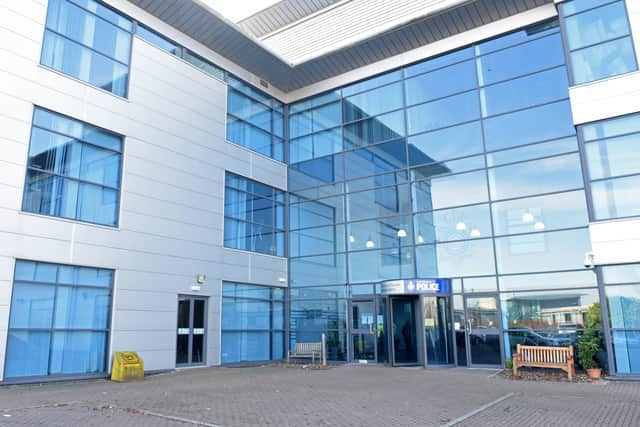Intelligence and data are important in policing but so are people who interpret it - Dr Alan Billings
It was held at Robert Dyson House, the police training centre in the Dearne Valley. They have these quite intensive sessions three times a year.
I thanked them for what they do day to day because for most people they will be the first point of contact with the police. They need to respond appropriately first time, therefore, if there is to be a good outcome and if public trust and confidence in policing is to be maintained. But we don’t see them and it is easy to take them and their vital role for granted.
Advertisement
Hide AdAdvertisement
Hide AdWhile I was there they were doing a desk top exercise. They were asked to say how they would respond to calls that were coming in about an unfolding incident. They were being told about what members of the public were dialling in about.


A picture was gradually emerging of something major happening and they had to think hard: what were they hearing and what would they do about it? What was the appropriate police response? What other emergency services needed to be alerted? How were they to be contacted and what was to be said to them?
As the incident developed, there were other agencies that needed to be brought in as well. Again, they had to think about who those agencies were and how they were to be informed.
And so the information kept coming and the way the situation was perceived evolved. They had to think quickly – and get it right, the first time.
Advertisement
Hide AdAdvertisement
Hide AdIt struck me very forcibly as I listened, how key the call handlers and those in the force control room are if the police are to respond in timely and appropriate ways, because they have to interpret and make sense in real time of the information coming in. And people who contact the police at these times are not necessarily speaking in a calm and unemotional or well-ordered way.
Which raises the broader point. Policing more generally is as good as the intelligence, the information and data it receives. But none of this interprets itself. You need the intelligence and the data; but you also need people who can analyse and make sense of it. And get it right.
Interestingly, I was in touch last week with an old colleague from the days when I taught military ethics (through the UK Defence Academy). We recalled a presentation we once had from a member of the Israeli Defence Force (IDF) which touched on this matter of intelligence and the need to make sense of it. This is something they have to deal with on a daily basis – and get it right.
We spoke about the apparent intelligence failure that had left Israel unprepared and defenceless in the face of the recent terrorist incursions.
Advertisement
Hide AdAdvertisement
Hide AdShe pointed out, however, that the issue might not have been a lack of intelligence but too much and a failure to understand the significance of what was coming in. However good the intelligence, it still requires judgements to be made.
We live in a data rich environment and the demand for more can only grow, including from within policing. But none of this information interprets itself.
A shortened version of the Police and Crime Commissioner for South Yorkshire’s latest blog post.